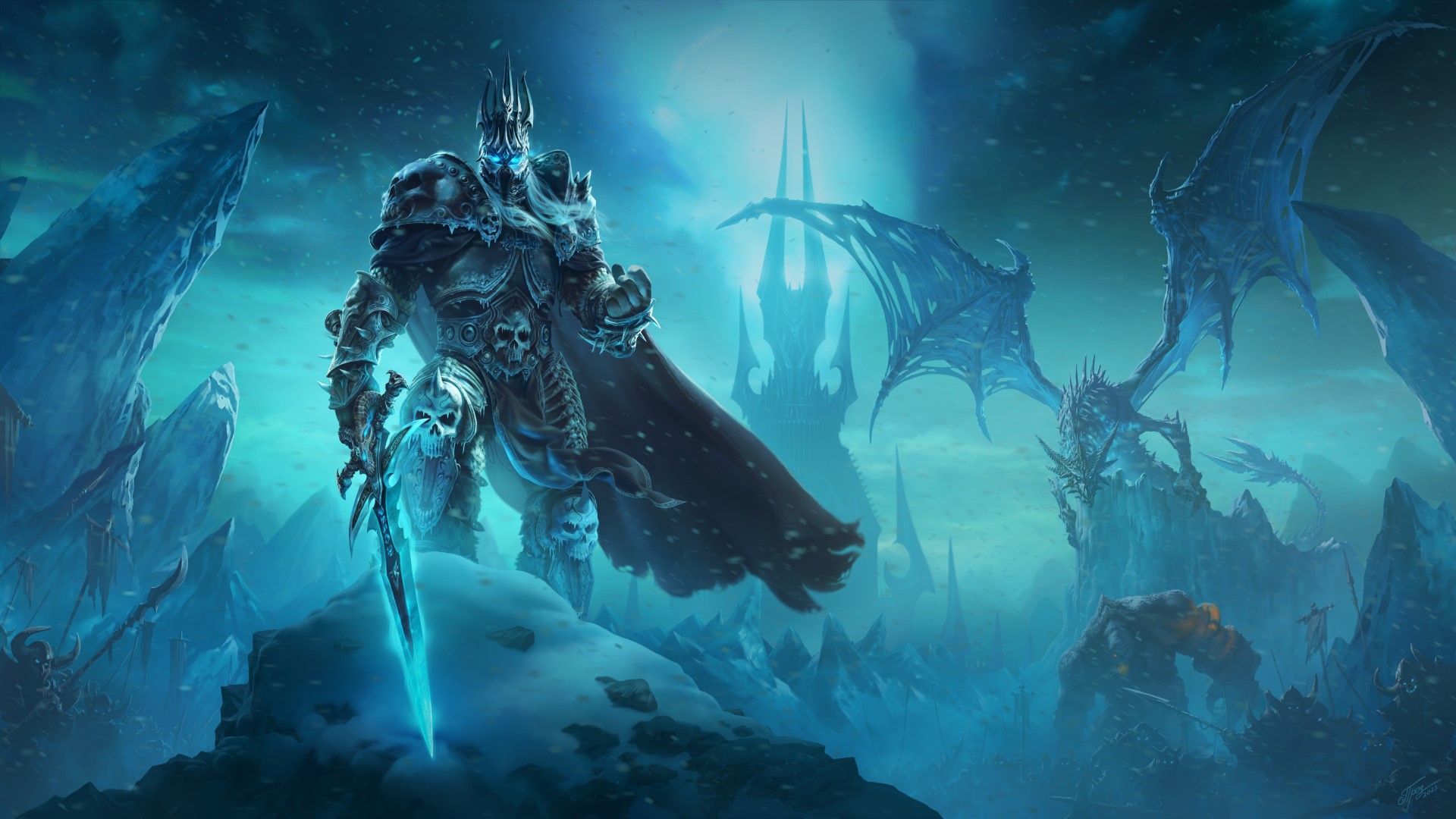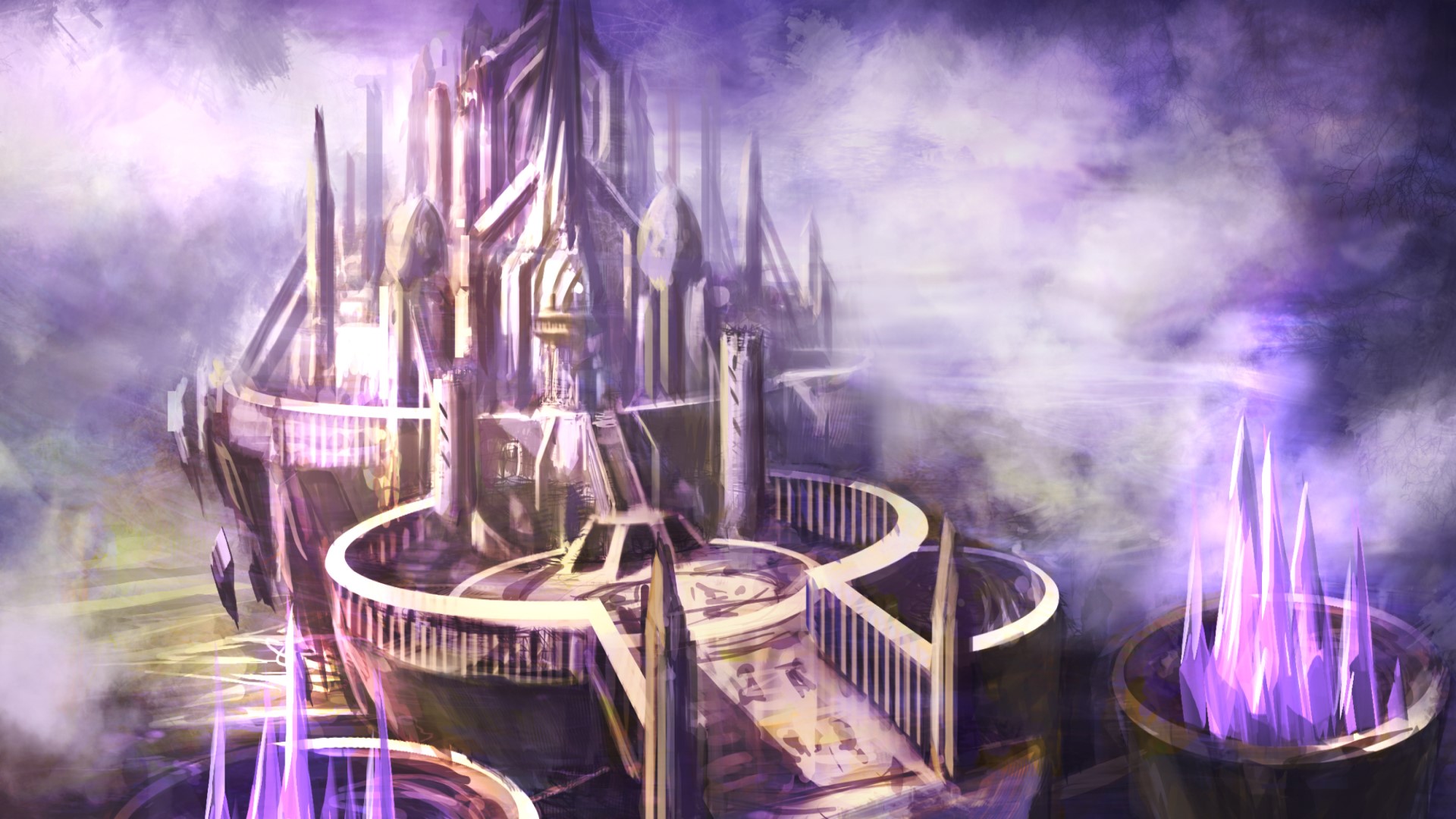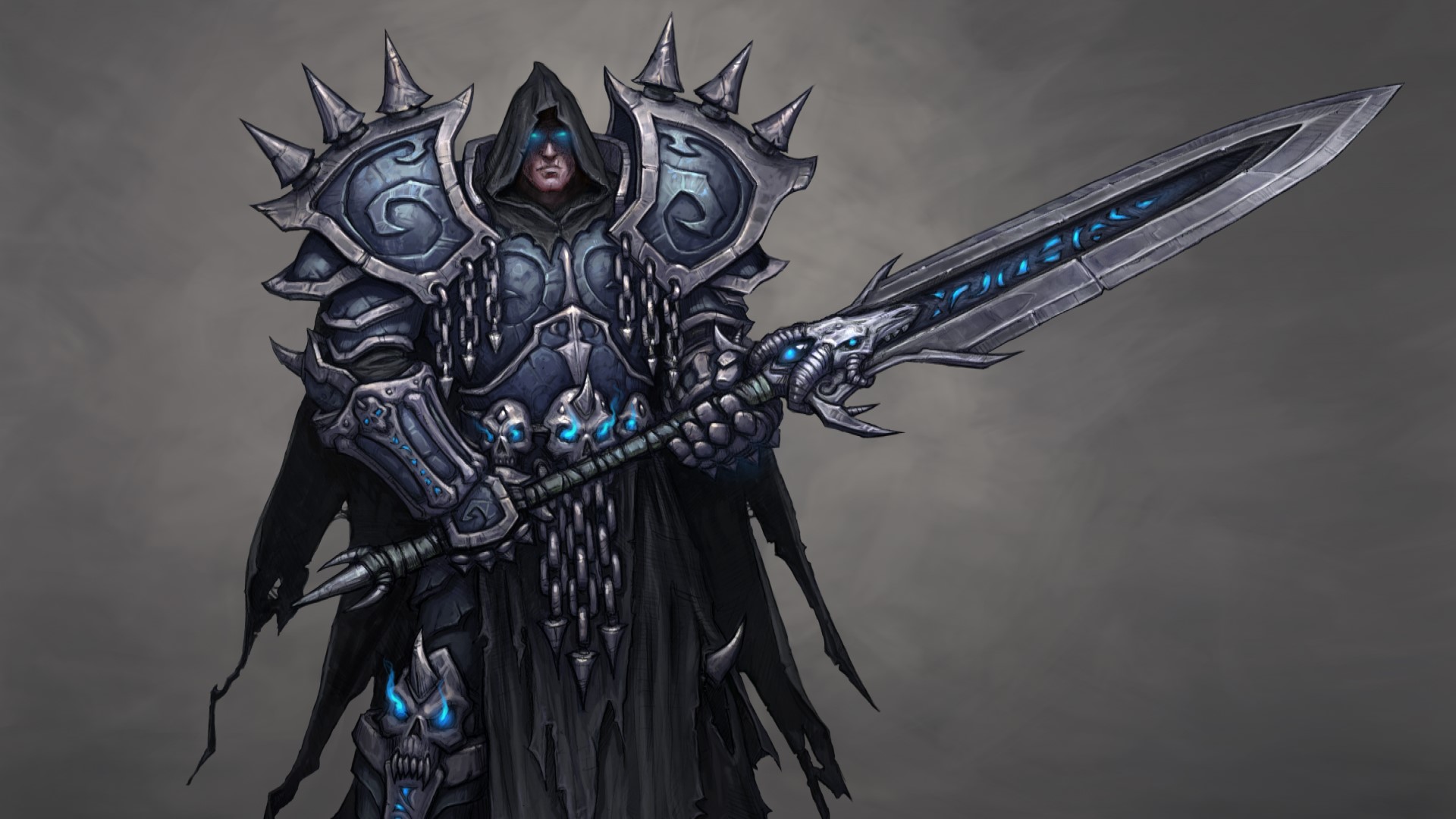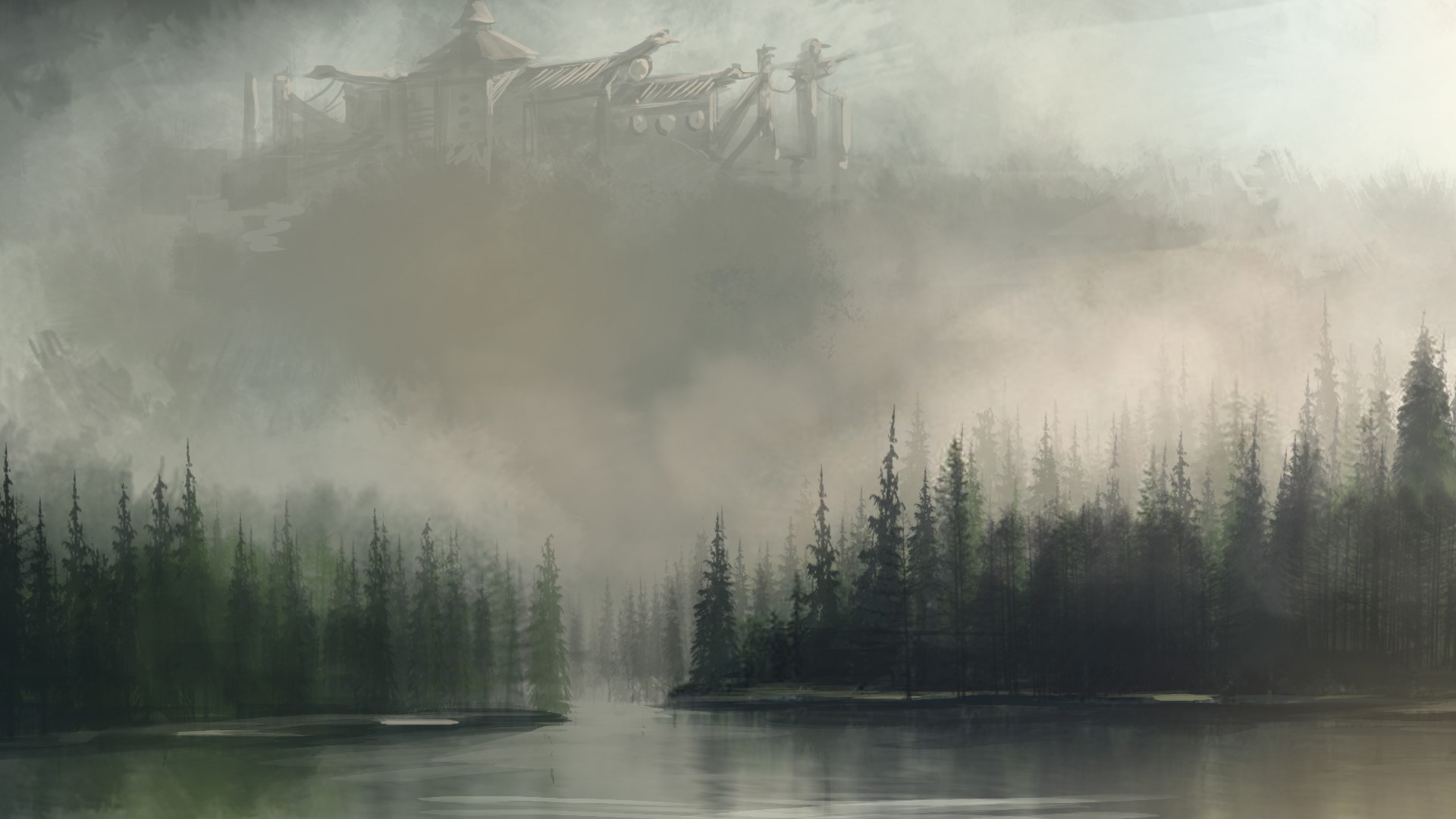Wrath of the Lich King Classic omitted a big feature and is better for it
Heavy lies the head

One late night in 2007, I found myself in Auchenai Crypts, a mausoleum full of the spirits of the restless dead, with a group of strangers I’d found in World of Warcraft’s public chat.
It was a struggle, but we pulled each other up, cutting down hordes of undead together, and all the while making each other laugh. In the end, we triumphed putting the restless spirit of Exarch Maladar to rest and securing precious, precious loot. Soon after, they invited me to join their Guild and it started something that had me hooked for years. But it could have been very different if I’d been playing two years later, because of a seemingly small feature added in a patch, I don’t think this would have been possible. And Blizzard agrees.
With patch 3.3.0, Blizzard added a feature called Dungeon Finder. The group-finding tool altered the tapestry of the World of Warcraft experience by bypassing the organic, yet undoubtedly more inefficient, party-finding that players had to do themselves. Though convenient, something was lost.

When Blizzard spoke to players, the original Lich King’s Dungeon Finder “wasn’t the experience [fans] were asking us to bring back,” senior software engineer Kevin Vigue tells me. The impact is it makes Classic a more “social experience” than the original, allowing you to “build friendships in the world”.
That’s why Vigue and the team at Blizzard making Wrath of the Lich King Classic, the modernized World of Warcraft expansion, have decided not to bring Dungeon Finder back.
By drawing a line under the Dungeon Finder in this way, the Wrath Classic developers have identified a turning point in World of Warcraft’s history.
By drawing a line under the Dungeon Finder in this way, the Wrath Classic developers have identified a turning point in World of Warcraft’s history. Wrath of the Lich King is the high point of the “classic” World of Warcraft experience.
By forcing me and others to form parties through chat channels and glorified in-game message boards, Blizzard sowed the seeds for communities to grow. When Guilds were comprised of friendships formed against World of Warcraft’s unhelpful mechanics, rather than through the “looking for Guild” system of later expansions, those bonds were stronger.
Get daily insight, inspiration and deals in your inbox
Sign up for breaking news, reviews, opinion, top tech deals, and more.
So come then, you heroes

When Wrath of the Lich King launched in 2008, my guildmates and I ventured to the frozen North together as friends and allies. The weight of our shared experiences carried us through Ulduar and Icecrown Citadel. Our adventures together culminated in a battle with Arthas himself at the foot of the Frozen Throne. At this point, I had been given the lofty responsibility of leading the raid – the weight of which boggled and humbled my teenage mind.
It was ten friends against the biggest big bad we’d ever seen. It took months of effort, but, finally, the Lich King fell. It was a bonding experience I shall never forget. It made me a better person, a better leader, and a better friend.
If I’d been matchmade with these friends all those years ago, we wouldn’t have spent so long hanging around in public chat, trying to find the roles we needed to fill out our party.
These deep and emotionally resonant experiences were made possible, in part, because of the lack of matchmaking. It generated social relationships that were, as Vigue puts it, “sticky”. If I’d been matchmade with these friends all those years ago, we wouldn’t have spent so long hanging around in public chat, trying to find the roles we needed to fill out our party. We would have been slotted together by a machine, dropped into a dungeon, and, after completing our run, may have all just gone our separate ways.
It is heartening to hear, therefore, that the devs have set out to “make the best group finding experience possible without actually taking away those social aspects.” Though Blizzard has introduced a Dungeon Finder system, it functions far more like a message board, much more in line with the design of World of Warcraft’s older incarnations.
No king rules forever

The World of Warcraft Classic project is an attempt, earnest and ambitious in its scope, to resurrect and immortalize an instance of the MMO’s past, rendering it accessible in the present. By its very nature, the project doesn’t invite innovation. It is meant to be a time capsule, a single moment in gaming history lovingly held in stasis by a team of devoted curators.
However, the developers’ choice to abandon the matchmaking system of the original Wrath to preserve the spirit of the game, if not the reality of it, is a cause for hope.
By its very nature, the project doesn’t invite innovation. It is meant to be a time capsule, a single moment in gaming history lovingly held in stasis by a team of devoted curators.
Though beloved by many, Cataclysm, the sequel to Wrath, saw Blizzard double down on matchmaking with the introduction of the Raid Finder. It was a turning point in World of Warcraft’s history – from then on, finding groups became a seamless experience, without the friction that formed friendships.
If the Classic team continues its trajectory and updates Cataclysm next, it will be an even more stark departure to not follow that matchmaking path. But what if Blizzard just didn’t?
What if Wrath of the Lich King wasn’t followed by Cataclysm, but by some other project, one that keeps to the spirit that excluded Dungeon Finder from Wrath Classic?
Is a truly modern video game that also preserves the ethos of World of Warcraft Classic possible? I don’t know, but I’d love to find out.

An editor and freelance journalist, Cat Bussell has been writing about video games for more than four years and, frankly, she’s developed a taste for it. As seen on TechRadar, Technopedia, The Gamer, Wargamer, and SUPERJUMP, Cat’s reviews, features, and guides are lovingly curated for your reading pleasure.
A Cambridge graduate, recovering bartender, and Cloud Strife enjoyer, Cat’s foremost mission is to bring you the best coverage she can, whether that’s through helpful guides, even-handed reviews, or thought-provoking features. She’s interviewed indie darlings, triple-A greats, and legendary voice actors, all to help you get closer to the action. When she’s not writing, Cat can be found sticking her neck into a fresh RPG or running yet another Dungeons & Dragons game.